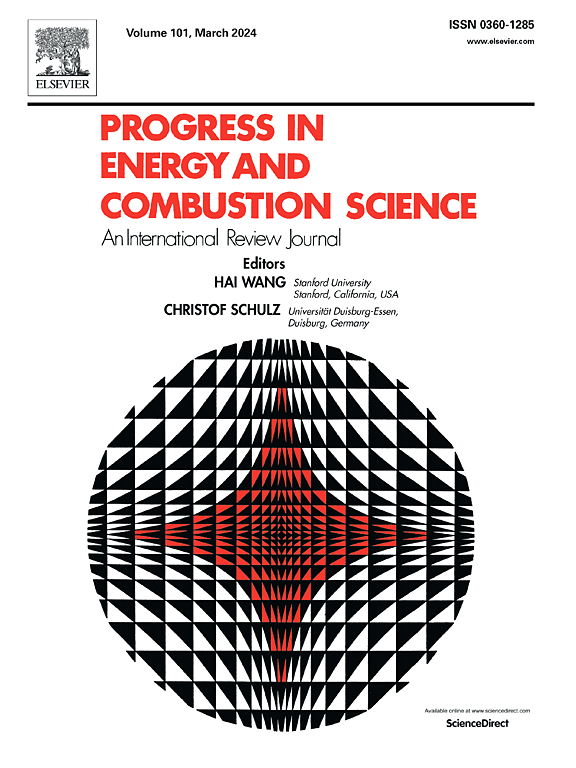对太阳能燃料部署的政策支持:岛屿作为快速绿色转型的试验台
IF 37
1区 工程技术
Q1 ENERGY & FUELS
引用次数: 0
摘要
沿海地区,特别是岛屿,由于其地理和气候条件,特别容易受到气候变化的影响。实现脱碳目标是一个漫长的过程,这将需要彻底的改变和“跳出框框”的思维。在这种背景下,岛屿通过提供探索可能性和替代方案的空间,成为绿色转型的实验室。在这里,我们探讨氢(H2)能源技术如何通过提供存储解决方案,成为岛屿生产可再生电力的关键盟友。然而,考虑到许多岛屿上充足的阳光,我们也注意到,通过使用太阳能燃料技术的“绿色氢”热电联产,可再生能源和氢技术之间存在着更深入合作的巨大潜力。太阳能氢是一种清洁的能源载体,直接或间接地利用太阳能辐照进行水分解过程,如与电解槽和光电化学电池耦合的光伏系统。虽然这项技术正在迅速兴起,但我们质疑对此类举措有多少足够的政策支持,以及如何扩大规模。我们报告了加那利群岛一个试点氢气工厂的案例研究,并就海岛环境下氢和其他太阳能燃料的早期政策影响提出了建议。本文借鉴了以岛屿为政策实验室的文献和能源转型的多层次视角。我们认为,需要特别关注一些离散的问题,如研究和规划,以及新兴的当地技术利基、各种能源监管制度与全球趋势之间更好的同步。本文章由计算机程序翻译,如有差异,请以英文原文为准。
Policy supports for the deployment of solar fuels: islands as test-beds for a rapid green transition
Coastal areas, particularly islands, are especially vulnerable to climate change due to their geographic and climate conditions. Reaching decarbonisation targets is a long process, which will require radical changes and ‘out of the box’ thinking. In this context, islands have become laboratories for the green transition by providing spaces for exploring possibilities and alternatives. Here we explore how hydrogen (H2) energy technologies can be a critical ally for island production of renewable electricity in part by providing a storage solution. However, given the abundance of sunlight on many islands, we also note the huge potential for a more profound engagement between renewables and hydrogen technologies via the co-generation of ‘green hydrogen’ using solar fuels technology. Solar hydrogen is a clean energy carrier produced by the direct or indirect use of solar irradiation for water-splitting processes such as photovoltaic systems coupled with electrolysers and photoelectrochemical cells. While this technology is fast emerging, we question to what extent sufficient policy support exists for such initiatives and how they could be scaled up. We report on a case study of a pilot H2 plant in the Canary Islands, and we offer recommendations on early-stage policy implications for hydrogen and other solar fuels in an island setting. The paper draws on the literature on islands as policy laboratories and the multi-level perspective on energy transitions. We argue that particular attention needs to be given to discrete issues such as research and planning, and better synchronising between emerging local technology niches, the various regulatory regimes for energy, together with global trends.
求助全文
通过发布文献求助,成功后即可免费获取论文全文。
去求助
来源期刊

Progress in Energy and Combustion Science
工程技术-工程:化工
CiteScore
59.30
自引率
0.70%
发文量
44
审稿时长
3 months
期刊介绍:
Progress in Energy and Combustion Science (PECS) publishes review articles covering all aspects of energy and combustion science. These articles offer a comprehensive, in-depth overview, evaluation, and discussion of specific topics. Given the importance of climate change and energy conservation, efficient combustion of fossil fuels and the development of sustainable energy systems are emphasized. Environmental protection requires limiting pollutants, including greenhouse gases, emitted from combustion and other energy-intensive systems. Additionally, combustion plays a vital role in process technology and materials science.
PECS features articles authored by internationally recognized experts in combustion, flames, fuel science and technology, and sustainable energy solutions. Each volume includes specially commissioned review articles providing orderly and concise surveys and scientific discussions on various aspects of combustion and energy. While not overly lengthy, these articles allow authors to thoroughly and comprehensively explore their subjects. They serve as valuable resources for researchers seeking knowledge beyond their own fields and for students and engineers in government and industrial research seeking comprehensive reviews and practical solutions.
 求助内容:
求助内容: 应助结果提醒方式:
应助结果提醒方式:


